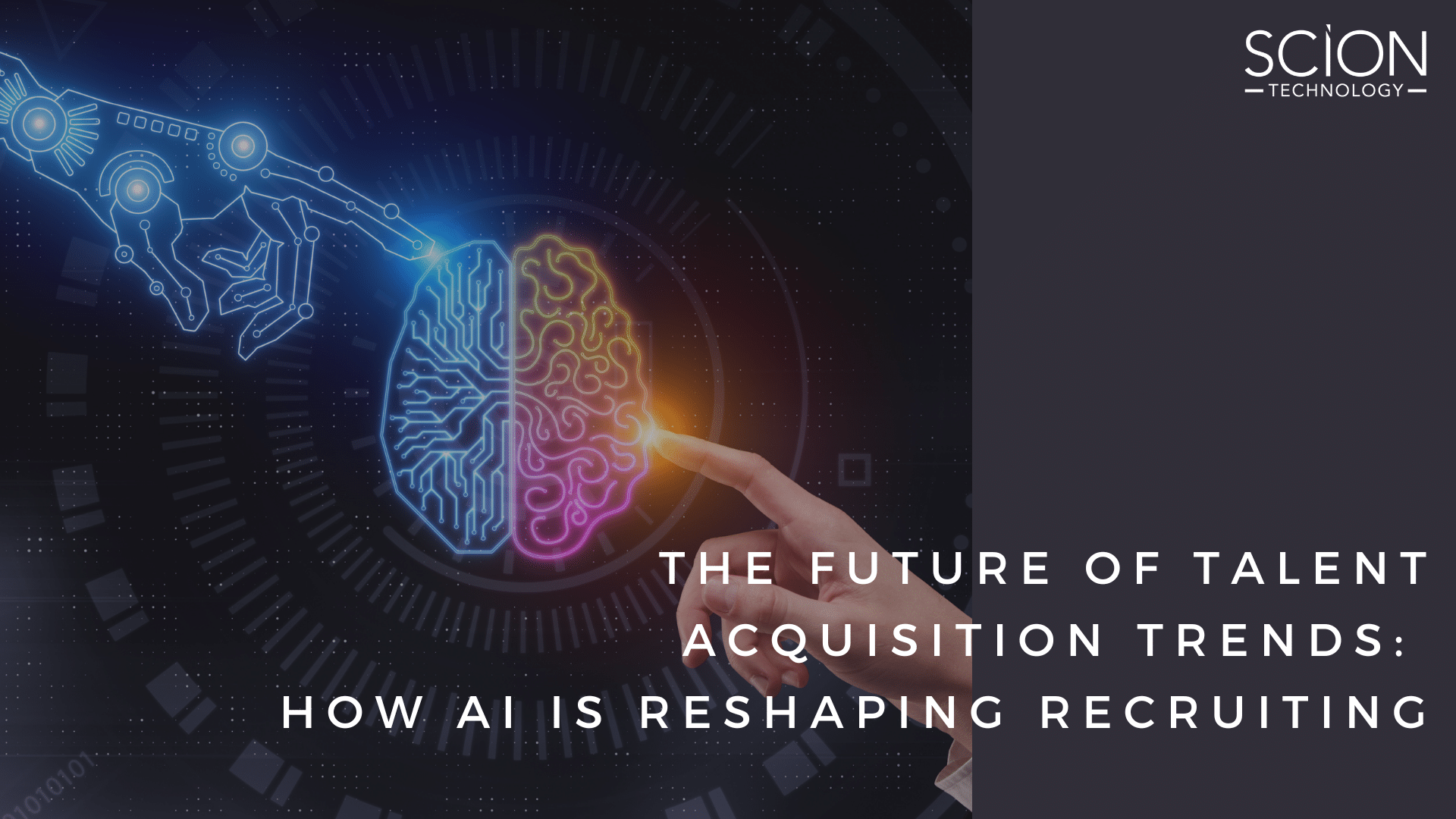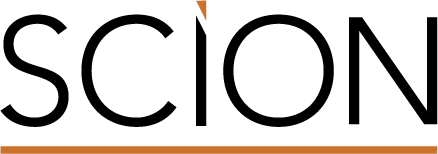
30 May The Future of Talent Acquisition Trends: How AI is Reshaping Recruiting
The talent acquisition landscape is evolving at a breakneck speed, driven largely by advancements in artificial intelligence (AI) and machine learning. Recruiters and hiring managers are both embracing technological innovations to streamline their processes, make more informed decisions, and enhance the candidate experience. In this blog, we’ll delve into the ways AI is reshaping recruiting, the benefits it offers, and the potential challenges it brings. Join us as we explore the future of talent acquisition trends and how you can stay ahead of the curve.
AI-Driven Candidate Sourcing
In the past, sourcing candidates was a time-consuming and often imprecise process that relied heavily on manual methods. However, AI has revolutionized candidate sourcing by enabling recruiters to identify and engage with potential hires more efficiently. By leveraging AI-powered tools, recruiters can now analyze vast amounts of data to pinpoint the best-fit candidates, even those who may not be actively seeking new opportunities. AI is transforming the sourcing process, making it faster, more accurate, and more strategic.
Benefits of AI in Candidate Sourcing
Attracting and securing top performers requires a strategic approach. Here’s where it can step in as a game-changer for candidate sourcing. By unlocking a wider pool of qualified candidates, making data-driven matches, and predicting long-term success, AI empowers you to build high-performing teams and gain a significant edge in the talent acquisition landscape. Let’s delve deeper into the specific benefits of AI for candidate sourcing and how it can have an effect on future talent acquisition trends.
Unlocking Hidden Talent Pools
AI algorithms can sift through massive datasets from various sources, including professional profiles, social media platforms, and niche job boards. This allows you to uncover highly qualified candidates who might not actively be searching for new opportunities or whose resumes don’t perfectly match traditional keyword searches.
Data-Driven Matching for Better Fit
AI goes beyond simple keyword matching. It can quickly analyze a candidate’s skills, experience, and even writing style to assess their cultural fit and potential for success within your specific role and company culture. This data-driven approach leads to a more targeted shortlist to review, reducing wasted time interviewing unqualified candidates.
Predictive Analytics for Informed Decisions
There are more programs that can analyze past hiring data to identify patterns that predict high-performing employees. By applying these insights to current searches, you can prioritize candidates with a higher likelihood of thriving in the role and becoming long-term assets to your organization.
Streamlined Workflows and Cost Efficiency
AI automates many time-consuming tasks associated with candidate sourcing, such as resume screening and initial outreach. This frees up valuable time to focus on building relationships with top talent and crafting a compelling employer brand to continue to grow your brand awareness and business reputation.
Enhancing Candidate Experience: The Role of AI
In an increasingly competitive job market, providing an exceptional candidate experience has become a key differentiator for employers. AI is playing a crucial role in enhancing the candidate journey, from initial contact to onboarding. From chatbots that provide instant responses to candidate queries to personalized job recommendations, AI is helping companies create a seamless and engaging experience for job seekers. In this section, we’ll examine the various ways AI is improving the candidate experience and why it matters in attracting top talent.
Automated Resume Screening
One of the most time-consuming tasks for recruiters is screening resumes. AI-powered tools can automate the recruitment process by scanning resumes for keywords, qualifications, and experience levels that match the job description. This allows recruiters to focus on the most promising candidates without spending hours sifting through applications.
AI in Candidate Assessment
Beyond resume screening, this technology is also transforming candidate assessments. Some tools use AI to evaluate potential candidates’ cognitive abilities, emotional intelligence, and cultural fit through gamified assessments and video interviews. These tools analyze facial expressions, tone of voice, and other non-verbal cues to provide a more comprehensive evaluation of candidates.
Hope of Improving Diversity and Inclusion
AI can also hopefully contribute to building a more diverse and inclusive workforce. By removing certain biases from the screening and hiring process, it can ensure that candidates are evaluated solely based on their qualifications and potential, rather than factors such as gender, ethnicity, or age. While it isn’t perfect as of right now, the hope is that these systems will be able to fully eliminate unconscious bias in the future of talent acquisition.
Challenges and Ethical Considerations
While the benefits of AI in recruiting are numerous, it’s essential to acknowledge the potential challenges and ethical considerations that come with its adoption. From concerns about data privacy to the risk of perpetuating bias in algorithms, it’s crucial for organizations to navigate these issues carefully. In this section, we’ll discuss the main challenges associated with AI in recruiting and explore best practices for ensuring ethical use of these powerful tools.
The Issue of Bias in AI Systems
One of the most pressing concerns in the application of AI to talent acquisition is the potential for biased decision-making. AI systems, after all, are only as good as the data they are trained on. Historical data sets often reflect existing biases present in human behavior and decision-making. For instance, if an AI system is trained on a data set where a certain demographic has been historically favored in hiring decisions, it might inadvertently learn to perpetuate that bias.
Despite these challenges, significant strides are being made to mitigate bias in AI-based recruiting tools. Here are some of the ways in which AI developers and organizations are addressing this critical issue:
- Diverse Data Sets: Efforts are underway to train AI systems using more diverse data sets. By including a broader range of demographic information, AI can learn to make more equitable decisions.
- Bias Detection Algorithms: Advances in machine learning have led to the development of algorithms specifically designed to detect and counteract bias within AI systems. These algorithms can identify patterns that suggest biased outcomes and adjust the decision-making process accordingly.
- Human Oversight: A critical component in reducing AI bias is human oversight. By involving human recruiters in the AI-driven hiring process, organizations can catch and correct any biased recommendations before they influence final hiring decisions.
- Ethical AI Frameworks: Many tech companies are now adopting ethical guidelines for AI development, including principles focused on fairness and accountability. These frameworks help ensure that AI tools are designed and used in ways that promote equal opportunity.
The Road Ahead
While it is clear that AI has made substantial improvements in reducing bias, it is equally evident that the technology is not yet perfect. Ongoing research and development are crucial to further enhance the fairness and accuracy of AI-based recruiting tools. For organizations looking to leverage AI in their talent acquisition strategies, it is vital to remain vigilant. Regular audits of AI systems, continuous training on diverse data sets, and robust human oversight are essential components to ensure that these tools serve all candidates fairly.
Partnering for Success: Beyond AI-Powered Sourcing
As AI continues to evolve, its impact on talent acquisition trends will only grow stronger. From sourcing and screening to candidate experience and predictive analytics, AI is reshaping the way companies attract, evaluate, and retain top talent. By embracing these technological advancements, organizations can stay ahead of the curve and build a more efficient, effective, and inclusive recruitment process.
Whether you’re seeking top talent for cutting-edge AI development roles or building a strong foundation across various tech functions, Scion Technology is your trusted partner. Our expertise extends beyond the realm of AI-powered candidate sourcing. We leverage a comprehensive suite of recruitment solutions and a deep understanding of the tech landscape to ensure you find the perfect fit for all your tech hiring needs. Contact our expert recruiting team today and let’s discuss how we can help you build your dream tech team.
About the Author
Patrick Chiotti (he/him) is an accomplished SEO writer and is currently the Marketing and Communications Specialist at Scion Staffing, bringing years of experience in SEO knowledge and a passion for writing to the Scion team. With additional experience in customer service roles, retail, and accounting, Patrick brings a unique set of knowledge and skills to his role while sharing the passion to continue learning about a wide range of topics so he can share his voice to a larger audience. Outside of Scion, Patrick spends his time as a football coach at the high school level and is passionate about teaching the game, while remaining a student to it. He is also a husband and father, and enjoys fitness, as well as a passion for cooking amazing food.


